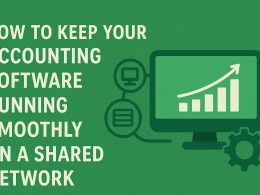In an era where financial security and independence are paramount, the concept of compound interest remains an indispensable tool for individuals looking to grow their wealth steadily over time. This financial phenomenon, often regarded as one of the most potent forces in personal finance, has the potential to transform your financial future. In this feature story, we delve into the mechanics of compound interest and explore its incredible ability to make your money work for you.
The Magic of Compound Interest
Compound interest, in its essence, is the interest calculated on the initial principal amount, as well as the accumulated interest from previous periods. In simpler terms, it’s the interest you earn not only on your initial investment but also on the interest it generates over time. This compounding effect can lead to exponential growth in your wealth, provided you give it the gift of time.
Imagine you invest $1,000 at an annual interest rate of 5%. At the end of the first year, you’ll have $1,050. However, in the second year, you earn 5% interest not just on your initial $1,000 but also on the $50 you earned in the first year. This results in an additional $52.50, leaving you with a total of $1,102.50. Over several years, this process repeats, and your money begins to snowball.

The Rule of 72
One of the most helpful tools to understand the potential of compound interest is the Rule of 72. This rule is a simple formula used to estimate how long it takes for an investment to double in value at a fixed annual rate of return. You divide 72 by the annual interest rate to get the approximate number of years required for your investment to double. For example, at a 6% annual interest rate, it would take about 12 years for your investment to double (72 / 6 = 12).
The Impact of Time and Consistency
The true magic of compound interest lies in the combination of time and consistent contributions. Starting early and making regular contributions can amplify your returns significantly. Let’s consider two individuals, Alex and Blake:
- Alex starts investing $5,000 annually at the age of 25 and continues until retirement at 65, earning an average annual return of 7%.
- Blake, on the other hand, delays investing until age 35 and invests the same amount annually until retirement at 65, also earning an average annual return of 7%.
Despite investing the same amount and earning the same return, Alex ends up with significantly more money at retirement than Blake due to the extra years of compounding. In fact, Alex’s investments would have grown to over $1.2 million, while Blake’s would only be around $760,000.
The Role of Financial Education
While the concept of compound interest is a financial fundamental, it’s alarming how many individuals are unaware of its power. This knowledge gap can lead to missed opportunities and financial insecurity in the long run. It’s crucial for educational institutions and financial advisors to prioritize teaching the fundamentals of personal finance, including compound interest, to empower individuals to make informed decisions about their financial futures.
Conclusion
The power of compound interest is undeniable. It can turn small, consistent investments into substantial wealth over time. The key is to start early, stay consistent, and let time do the heavy lifting. In an age where financial security is a priority for many, understanding and harnessing the magic of compound interest is a crucial step toward achieving your financial goals. So, whether you’re just starting your journey to financial independence or looking to optimize your existing investments, remember that time and consistency are your greatest allies in growing your money over time.












